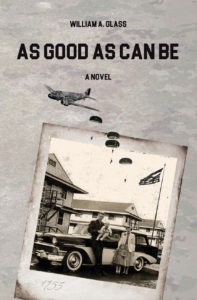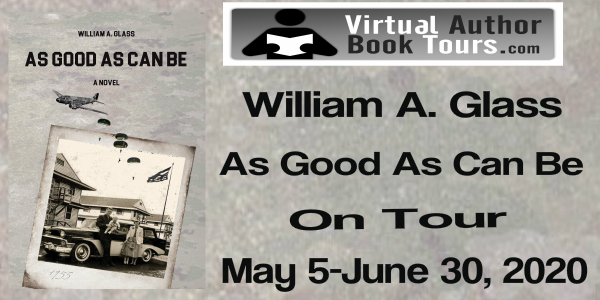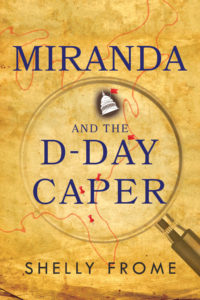The Gallaghers and Pruitts have dominated the American political landscape dating back to Revolutionary times. The Yale University class of 1996 had one of each, and as the twenty-year reunion approaches, the families are on a collision course.
Owen Gallagher is coasting to the Democratic nomination for president.
Rock Pruitt — the brash maverick whose career was derailed two decades ago by his association to a tragic death — is back, ready to reclaim the mantle of clan leader.
And fatefully in between lies Samantha Lessing. Sam arrives at reunion weekend lugging a rotten marriage, dumb hope, and a portable audio recorder she’ll use for a public radio-style documentary on the Pruitt-Gallagher rivalry — widely known as the pinebox vendetta.
What Sam uncovers will thrust her into the middle of the ancient feud, upending presidential politics and changing the trajectory of one clan forever.
1
Jamie Gallagher stood beside the pirate at the skiff’s rail, the African sea thick on his skin. Neither man could see the other in the moonless night, but Jamie smelled the khat the Somali never stopped chewing—sweetly sharp, a scent that made Jamie feel part cleansed and part crazed.
“The money is ready,” said the pirate named Abdi. “My men have packed the briefcase.”
“Wanaagsan.” Jamie ducked his head in gratitude. “You believe the general will accept a briefcase?”
“This is the usual way, yes. It will be checked for explosives with X-ray and IMS swabs.”
“Of course.”
“Also, the general will insist on verifying the amount before the release occurs.”
“His men are going to count ten million dollars?” Jamie asked.
The Somali spat khat leaves into the sea. “He has machines. The machines check by weight.”
Jamie exhaled, pushing his own breath into the hot, still air. The money would weigh out.
The money wasn’t the trick.
Abdi continued, “Once the amount is verified, the general will call his people in the jungle by satphone, and they will free your journalist.”
“Immediately? I’ll need confirmation from HD before we leave the yacht.”
“That is the arrangement.”
Jamie mopped his brow. Acting wasn’t his strength, and he hoped his insistence on this procedural point was convincing. In fact, Humanitarian Dialogue (HD) knew nothing about tomorrow. There would be no representative at the hand-off spot, and the French journalist—whose reporting on minority suffrage truly had opened the world’s eyes—would not be freed.
This was a regret. But Jamie Gallagher had lived with worse.
He said, “I’ll be X-rayed, too?”
“Yes.”
“Strip-searched?”
“At a minimum. You should expect a body cavity search.”
“Fine.” In his years advocating for peace and public health around sub-Saharan Africa, Jamie had had his cheeks probed, his neck magnetically combed, and the arches of his feet flayed. “I suppose the general’s in no position to be trusting.”
The pirate took a while to respond. Was he eyeing Jamie in the dark? Signaling to his men back on the mothership? Jamie’s statement had been obvious and shouldn’t have invoked offense.
Since joining the pirates at Merca, a white beach paradise down the coast from Mogadishu, Jamie had detected hostility—even after paying their exorbitant convoy fee. Abdi himself had been civil enough, but his three young lieutenants, after pointedly using their left hands to shake Jamie’s, had glared at him with undisguised contempt.
He understood this. A westerner waltzes onto their ship with unimaginable stores of cash—cash that, in a matter of hours, will bring them into contact with the most wanted war criminal on the planet. Naturally, they resented him.
He was what, five years older than them? With his bandanna and dishwater-blond hair?
Abdi said, “This is a great risk for us. We have earned the general’s esteem. We do not wish to squander it.”
Jamie heard the clench in the man’s jaw. “I assure you, I will comply with every procedure he or you tell me to follow.”
General Mahad and these Somali pirates fought on the same side of many issues. Both wanted the ruling Muslims out of Puntland. They didn’t care that the Muslims had remade the conflict-ravaged region into a prosperous enclave, introducing compulsory education and a foodstuff-based living wage.
For the pirates, the problem was their strict, Islam-centric brand of law and order, which had made the coastal waters harder to pillage.
General Mahad’s beef was simple: the Muslims had replaced him in power.
He’d ruled Puntland for a decade, enriching himself and his cronies using any resource available—khat, guns, people. When word of his atrocities leaked, international pressure mounted for a free election. The general agreed after a period of stonewalling, believing he could manipulate the results. When Al Jama-ah won anyway, the general stole all he could in the weeks before yielding control.
According to a local guide Jamie trusted, the general toured polling stations his last day with a machete, taking three fingers from each precinct leader.
“If I lose next time,” he told them, “you lose the rest.”
Though he retained a few loyalist strongholds like the one holding the French journalist, General Mahad himself lived on a yacht, moving constantly to evade capture. The Hague had convicted him last year in absentia.
Now Jamie asked, “Who’ll be coming aboard with me?”
“Me and Josef,” Abdi said. “We are known to the general.”
“Will you be armed?”
“No. He will search us, too.”
Jamie shuffled in place, the skiff feeling suddenly unsteady beneath him. “I—er, I hope it’ll be okay that I bring a gift. Akpeteshie. I was told it is the general’s favorite liquor?”
The pirate groaned pleasurably. “Akpeteshie, yes.”
“I thought we might share a drink as a token of good faith.”
“The bottle is factory-sealed?”
“Yes.”
“The general will like this. The general believes in courtesy.”
Several retorts came to mind at the ludicrous idea this butcher had any claim on civility, but Jamie swallowed them. He removed a pair of night-vision goggles from his rucksack. Before looking himself, he offered them to Abdi. Abdi waved them off as though the technology were frivolous.
Jamie scanned the horizon, right to left, left to right. The skiff’s sway seemed to increase. The eye cups stuck to his sweaty forehead.
The smell of khat, which hadn’t bothered him before, grated now, like sugar grit needling into his nose and eardrums. He felt the pressure of this place keenly. Every actor—man, woman, or child—who entered this stretch of ocean would be girded to fight. They must be. Choice never came into it.
A shape appeared on the horizon. Jamie thumbed his focus wheel until red blurs resolved to running lights.
“The general,” Abdi said.
Adrenaline jolted through Jamie. Here was a ghost vessel—a vessel many militaries of the world would board on sight, and one the United States wouldn’t think twice about blasting to smithereens with a drone strike.
The yacht grew larger in the greenish display. Jamie screwed on a bulky magnifier lens and was able to make out guards on the gunwale, ambling, AK-47s on their shoulders. The yacht was perhaps twenty meters. Several figures were sprawled out on deck, sleeping in the open for the heat.
Jamie raised the goggles, thinking to find the general on the bridge. The cockpit windows were smoked—opaque from outside and surely bulletproof.
He panned back down. The craft made a leeward turn, and he glimpsed new figures at the base of the pilothouse. These were prone like the others but smaller—a dozen in a line, little pulled-apart commas. Most of them were still, but one squirmed restlessly.
Children.
Jamie’s stomach shrank to a cold fist.
#
He barely slept. Long after rowing back to the mothership and helping Abdi loosely tie up the skiff, and bedding down in the holds beside crates of ammunition and rocket-propelled grenades, Jamie lay awake thinking of those children.
He’d known the general had kids, twenty or thirty that he acknowledged. And it shouldn’t have been surprising such a monster would keep family members near, in the cross-hairs of danger. Still, the concrete knowledge of these innocents shook Jamie. His moral clarity waned, like a tower of blocks losing its crosspiece.
How will the general’s children move on? What if they fall into the arms of the pirates or the next warlord up?
From here, it was no leap at all to obsess about the French journalist. When the exchange was revealed as phony, would the general’s men execute her on the spot? They would blame her, despite the fact that she had played no role whatsoever in the ruse.
Renée Auteuil had been raised by a jobless father in Roubaix, the post-industrial husk of a city. She’d worked sixty-hour weeks as a line cook to support them. She’d defied dictators on three continents to achieve the eminence and audience that had prompted General Mahad to snatch her last spring.
Now Jamie was putting her in jeopardy, and for what?
So that he could feel better about himself? So he could feel absolved?
Jamie had chosen Puntland precisely because it was neutral territory in the feud between his family, the Gallaghers, and their conservative arch-enemies, the Pruitts.
The two clans had been fighting for nearly three centuries—and while there was hardly a facet of American political, corporate, or philanthropic life their battles hadn’t touched, neither family had much connection to Puntland. As president, Jonathan Pruitt hadn’t carried out any significant dealings with the territory during his term. (His only term, thankfully.) The Gallaghers facilitated relief missions all over Africa, but nothing specially in Puntland.
Jamie’s action tomorrow wouldn’t be interpreted as having grown out of the feud, or impacted the feud, or given the Gallaghers some edge in the next midterm elections.
This was separate. This was good, a thing nobody could spin or debate.
That had been the plan, at least.
Now doubts roared in Jamie’s mind. He dug at the roots of his hair, flopping about the damp, creaking boards. The Somalis snored in the adjacent room. Their arsenal reeked of grease and sulfur. Jamie crunched his eyes and pulled his rucksack, which he’d been toting around since freshman year at Yale, down over his head.
The thoughts still came, and the guilt.
His emotions spiraled and sickened and fought, and finally came to a head. He growled, disgusted by himself, then tore through his rucksack for the shoe that contained, wedged up in the toes, a newsprint photo of a mass grave discovered in northeast Puntland.
By penlight, he stared at the image. He seared it into his brain. The open trench of dusted gray bodies. The overlapping femurs. The fleshless faces.
The photo was merely one of dozens. Jamie knew the general was well-positioned to continue the slaughter once the collective international eye moved along.
“That’s it,” he whispered aloud. “Not one more thought.”
#
The meeting was to take place twenty minutes after sunrise. Jamie woke, having finally fallen asleep around four a.m., to the Somalis chatting in their native tongue over pieces of flatbread. He dragged himself aboveboard, feeling at once languid and jittery.
“Bread?” Abdi offered, tearing a piece from a slab.
“Thanks, no.” Jamie reached into his rucksack instead for a piece of biltong, the wildebeest jerky he’d grown fond of. “Has the general been about?”
“Yes, Josef saw him. The hat.” Abdi made a sifting gesture above his head to indicate the general’s beret.
The day was already scorching, the sky’s blue brilliance broken only by the boiling disk of the sun. The general’s yacht rocked softly in the west, appearing quite large now, its bow sleek and spear-like.
“They’re within gun range,” Jamie observed.
“Oh yes. We are in their scopes.”
As if to prove the point, Abdi raised a hand in the yacht’s direction and laughed. Nobody joined him.
The pirate named Josef, taller and broader in the chest than Abdi, loaded the ten-million-dollar briefcase into the first of three skiffs. Jamie stepped in after, fitting his rucksack into the hull—careful of the Akpeteshie inside—and tying back his hair.
Abdi took a minute instructing the two men staying back on the mothership. Was he arranging a distress signal? Telling them what to do if shots were fired?
Coordinating a double-cross?
There was no use worrying. Jamie had placed himself between dangerous people, but dangerous people performed the same calculations benign ones did. The pirates would keep up their end so long as the benefits remained clear: not only cash, but stronger ties with the general and the establishment of a new back-channel to the powerful Gallaghers.
The skiff loaded, Adbi yanked the outboard motor’s cord. The engine sputtered alive and settled to a rumbling purr. Josef untied them, flashing a grim thumbs-up to the men staying behind.
They charted a course for the general’s yacht. The sea felt choppier on the smaller craft, which didn’t bother Jamie—a lifelong boater and varsity swimmer in college—but did compel him to pull the rucksack protectively into his lap. If the Akpeteshie somehow ruptured against the hull, the mission would be lost.
As they neared the general’s yacht, the faces of his guards became visible—wary, textured faces. The carry-straps of AK-47s sawed their necks.
Abdi cut the motor and drifted in.
A section of railing was unclipped, and a ramp extended from the yacht’s stern. After helping Josef tie up, Jamie slipped the rucksack onto his back and boarded. The Somalis trailed him with the briefcase.
“Halkan, ku siin!” said one of the general’s men.
Abdi shook his head forcefully at the request—to hand over the briefcase. The guards backpedaled, their formation hemming Jamie and the pirates into a corner of the aft deck. Abdi and Josef walked with their bodies shielding the case as if it contained plutonium.
With these uneasy field positions established, the general’s men conferred briefly and parted to form an aisle to the pilothouse. General Mahad emerged.
The general wore his full dress uniform: navy blue, epaulets, ribboned medals. He lumbered forward with a mild limp, said to have originated during the Simba rebellion of 1964.
He raised his chin to Abdi, then spoke to Jamie. “Welcome to the one and true seat of Puntland, Mr. Gallagher.”
Jamie felt the man’s deep, scarred voice in his bowels. “That’s none of my concern. I’m here for Renée.”
The general smiled, his lips fat and sly. “How fortunate she is. You are the white knight, eh? Sir Jamie?”
The characterization stung, but Jamie pushed on. “I’ve been in touch with Humanitarian Dialogue—their helicopter is ready. Give me a latitude and longitude for the exchange and let’s get this over.”
“Your friends have the money?”
Every eye on the yacht turned to Abdi, whose knuckles tightened on the briefcase handle.
“Ten million,” Jamie said. “Count it if you like.”
The general crooked a finger at one of his men, who disappeared to the pilothouse. The man returned with a machine resembling a fax with bill-sized trays.
Abdi stepped forward with the briefcase. The man with the counting machine passed a handheld X-ray scanner around the case and swabbed a cloth along each edge.
He started for the pilothouse with the cloth, likely to perform a residue test for explosives, but the general stopped him. Then gestured for Abdi to go ahead.
When Abdi undid the clasp, the lip snapped open—ten million was a squeeze, even with an oversize case—and a few packets spilled out.
The counting began.
Now Jamie reached into his rucksack for the Akpeteshie.
“I’ve heard tell around campfires,” he began, gathering himself, “that you enjoy a certain Ghanaian beverage.”
The general grinned when he saw the bottle, squat, the neck’s glass bowed in the distinctive shape of a baobab tree.
“This is true.”
“Shall we drink together?” Jamie said. “It’s early, but I find a day started well nearly always ends well.”
The general palmed his jaw. There was a risk he would set the gift aside, but Jamie was counting on this subtle challenge to his manhood—in front of his crew, in front of Abdi and Josef. People like the general didn’t back down from such dares.
Jamie thought of his old classmate Rock Pruitt who’d downed a fifth of whiskey disproving a frat brother’s claim that prep-schoolers only drank martinis and smoked reefer.
“I would quite enjoy that,” the general said. “After the bottle is checked.”
Jamie raised a shoulder, feigning indifference as two men seized the Akpeteshie and held it sideways up to the sun, testing its feel in their hands, poking fingernails along the dripped-wax seal.
They would find nothing. Jamie’s sister Charlotte Gallagher, founder of internet-of-things giant SmartWidget and the eighteenth-richest person in the world, owned 45 percent of the local distillery that produced Akpeteshie. She had allowed Jamie to follow this lone bottle through the factory. At the final step, just before corking, he’d poured out 150 milliliters of liquor and replaced it with an equal amount of king cobra venom.
For fifteen months, Jamie had been inoculating himself with increasingly larger doses of the venom. He had started, after discussing the strategy at length with a Sudanese shaman, with a pinprick diluted in a pint of water. Last week, he had managed eight milliliters of venom—the amount a shot from the spiked Akpeteshie would deliver, depending on the pour—and suffered only dizziness, blurred vision, and severe cottonmouth.
When his men were satisfied the bottle was unaltered, the general took a pair of tumblers from the yacht’s fiberglass sideboard.
Tumblers, not shot glasses. Eight ounces at least.
“To finding a middle, eh?” The general poured each tumbler to the brim. “Two parties can start from opposite ends and, with good sense, find a common understanding.”
Jamie’s teeth pulverized each other in the back of his mouth. He’d always found the rhetoric of compromise disingenuous, whether it came from television pundits or the North Carolina Gallaghers exhorting the clan to give ground at the fringes of the abortion debate.
To hear it from the mouth of a man like Mahad? Revolting.
“To the middle,” he spat.
He raised the tumbler to his lips. Calculations whipped around his brain. Eight ounces divided by one point five…
Equaled six times the amount of venom his body had previously endured.
The liquid was amber, almost orange. As the glass tilted, Jamie imagined he saw currents of venom slithering among the palm wine. His fingers trembled. Some sloshed over the side, but not nearly enough.
In his periphery, Jamie became aware of Abdi and Josef arguing with the general’s men. Abdi slapped one empty well of the briefcase. The general’s men shouted. More rushed to the deck from below board.
The general balked at Jamie’s tone. “You do not like my toast. That is your right. You are the guest, so make your own.” He smirked about. “We are democratic here, aren’t we?”
Jamie ignored the low hoots. “To justice.” He regripped his tumbler. “To justice, and fair treatment for all living things.”
The general guffawed, big and toothy. “For ten million, yes. Why in hell not?”
Their eyes locked over the tumblers’ rims. Jamie perceived something in the man’s look, some hustler’s instinct, and knew if he faltered now—even for a moment—the trap would be blown.
Jamie stared into the lethal brew, waited for bright madness to rise, and drank. The Akpeteshie burned his throat. His jaw felt weak and daggers pressed into his eardrums from inside. Still, he kept his head tipped back and drank it all.
The general and several of his men goggled at the feat. When their eyes turned to him, the war criminal downed his, too.
“…no, the release! ” Jamie heard behind him. “No money before release!”
“We will keep it.”
“No, us! We will hold the money.”
A guard wearing ripped denim leveled his rifle at Abdi. Josef stepped forward to push aside the muzzle. Another guard drove the butt of his rifle into Josef’s back, crumpling the pirate.
Jamie didn’t know how long he and the general had. During his inoculation, the symptoms would begin in about a minute, but he’d never ingested this large a dose.
His heartrate zoomed and breath pumped through his chest like air from a bellows—still, this could be the effects of anticipation.
“So, um…the release,” he said, feeling a vague duty toward Abdi. “If you…so I’ll call HD and be sure Renée, er…s’all okay with the money…”
Words were deserting him. The scuffle on deck was intensifying. Josef had recovered to pounce on the man in denim. Abdi was buried in a furious tangle of fists and churning hips.
Jamie didn’t understand the fight. Let them have the money—who cared?
He began to feel disconnected from his body, Abdi and Josef blending into other people he’d known in life, Gallaghers and Pruitts, senators and reporters, grad students and business titans, all fighting without reason, finding joy and enemies, grinding their life into the larger sausage.
The general unleashed a thunderous whistle and raised his hand for calm. The struggle paused. Every eye turned his way. He began to lower his hand but suddenly couldn’t.
His arm convulsed and became some bucking stick-animal beyond his control. His fingers twitched unnaturally. He grasped his throat, staggering back. Froth bubbled in his nostrils.
The man who’d retrieved the money scale from the pilothouse pointed at Jamie.
“What is this?”
Jamie tried answering, but his tongue would not obey, dead and heavy in his mouth. Pain gored his brain. Sweat screamed from his pores, a thousand beads altogether.
This wasn’t the outcome Jamie had wanted, but neither was it wholly unexpected. He thought now of life’s best moments. In Burundi, feeling that boy’s skeletal hand squeeze as he sucked a tab of enriched peanut butter. On the vineyard, fourteen years old, swinging his cousins round and round in celebration after his mother—the senior senator from Connecticut and Democratic National Committee chairperson—had succeeded in her long-shot campaign to retake majority control of the Senate.
Above all, though, he remembered kissing Sam. Seniors on their last night at Yale, about to go conquer the world, standing together in an entryway. Emotions spiked to the heavens. Their mouths came together in the gentlest, deepest touch he’d known before or since.
Samantha Lessing. God, she was it. The life he missed.
Half the general’s men were swarming the Somali pirates while the other half moved on Jamie. There was a gap between the two, but it was closing.
Jamie willed his tongue back into service.
“This was right,” he croaked. “Here, today. This was not a waste.”
And he believed this—dashing across the deck through grasping hands, over the gunwale, into the black ocean.
TEN YEARS LATER
2
Sam slipped out of the WNYC studios at four thirty, waving off cheers of “Have fun!” and “Take me with you!”, hurrying through the lobby, jogging a short block to catch the uptown C. She needed to pick up a daughter and possibly husband in Brooklyn, then be back in Manhattan for the 5:41 p.m. train to New Haven. Reunion check-in closed at eight. If the train arrived on time, she’d make it easy.
If not? If any of the dizzying array of pitfalls inherent in teenagers and public transit popped up? Sam guessed they were sleeping on the street.
Half an hour later, she hiked three flights of stairs with key at the ready. The apartment was unlocked.
“Joss?” she called. “You are packed, yes?”
Her daughter’s door was closed, but guitar chords thwanged through. Sam stepped around French bread pizza and a stack of indie music magazines to pound twice.
“Not telling you what to wear,” she yelled, “but I suggest a dress or dress-like garment for Saturday night.”
The music inside dulled, indicating Sam had been heard. The warning bell had been sounded. She found an oversize duffel bag in the hall closet and tossed in her stuff: toiletries, three-odd outfits for the weekend, Zoom audio recorder.
About outfits: Sam both cared and didn’t care. She was forty-three. Her classmates were forty-three, give or take. Nobody should go rocking a prom dress, but they weren’t dead yet either. She brought dark-red sleeveless, plus yellow floral in case of glorious weather.
“Leaving twelve minutes!” she said through Joss’s door. “Zero wiggle situation.”
Tight timelines didn’t bother Sam—the studio commonly dropped post-production on her for shows that were airing in mere hours. Packing now, she thought pleasurably of the friends she’d see at the reunion. Laurel in from San Francisco. Jen Pereido. Naomi, even though she was still recovering from the birth of her fourth(!) child.
From her own daughter’s room came a squeal, streaked with joy. The noise pinched Sam’s heart. Her husband Abe was in there—they’d probably harmonized on some new melody. Which was awesome. Truly. Except that it was 4:48.
She opened the door. “I hate to be Yoko, but the time’s come to break up. Leaving in five minutes.”
Fourteen-year-old Joss looked up from fingering the neck of her guitar, still grinning. Abe sat cross-legged on the floor with the Yamaha across his knees, a kind of strung-out, hipster Dalai Lama. Both appeared stumped.
Sam said, “Yale? My alma mater, where you’ve been dying to go for months?”
Joss’s grin vanished. “Dad said you were leaving whenever! Isn’t it like an all-weekend thing? Today’s only Thursday.”
“Yes, but in order to check in Thursday night, as I hope to,” Sam said, patiently as she could, “we need to arrive on campus by eight o’clock.”
“That’s ridiculous, I’ve barely even looked at clothes.”
“Then look quickly. I’m winging it myself.”
Joss shot upright, dropping her guitar with a clang against the bed. “I’m not going to Yale on, like, zero notice. You can’t just spring this on me.”
“I sprung no thing on no body. We discussed timing last night, and this afternoon I sent your father four texts—every hour, on the hour—reminding him.”
“But those go to his phone,” Joss said. “Remember, I don’t have one? Because you won’t let me?”
Sam stretched one arm laboriously toward the ceiling, focusing on good breaths. Apparently, they were skimming right over Abe’s not passing along the messages. His long-running campaign to absolve himself of any and all responsibility—waged by a steady pattern of never giving a crap for anyone but himself—had succeeded at last.
“Look, we can argue about phones again or we can try to make this train. Otherwise, we basically miss half the reunion. We might as well skip.”
This genuinely spooked Joss. Her face hollowed even more deeply than usual. (She’d grown three inches this year, causing Sam to marvel at this moody, suddenly supermodel whose laundry she washed every week.) They’d been talking about the reunion forever, what architecture couldn’t be missed, whether student activists would be around for Joss to connect with.
Sam hated to use fear, that blunt-force instrument of the parenting arsenal, but she knew a reasoned argument would produce nothing but gridlock.
Joss started packing.
Abe, who’d disappeared to the bathroom, emerged now with drawstrings dangling from his sweats. He nodded to a pair of shiny heels in Sam’s duffel.
“Somebody’s dressing to impress.”
“I haven’t seen these people in twenty years,” she said. “I’m erring on the side of adequate.”
Her husband snorted, seeming to take the comment personally. Twelve years older than Sam, he’d been an already-aging rocker when she had met him in her late twenties. Between drugs and alcohol, and having nowhere in particular to be for the last twenty years—no office or classroom mores to adhere to—Abe had aged poorly. His leatherette skin belonged to a person decades older, and beige hair had fled the top of his head for his ears and nostrils.
“You’re more than welcome to join,” Sam said, stuffing in a toothbrush. “But we are leaving mucho rapido, so…”
He ambled a step away, picked up Joss’s guitar and set it in its case.
She heaved the duffel’s halves together to make the zipper zip. “You’re passing, correct? I just want to confirm with a verbal yes or no answer.”
Sam knew with four hundred percent certainty that some future argument would hinge on this point—whether or not Abe had been invited. They would be sniping back and forth about Yale, how phony or not phony her friends were, what first-world problems they were finding themselves crippled by, and he would break out his trump card.
You were embarrassed. You didn’t want me there, dragging you down.
And here it came, earlier than expected.
“You don’t have to faux-invite me,” Abe said. “You prefer to go alone. Oh, you’ll tolerate Joss. Joss is an acceptable accessory. Perfectly cool, I get it. I won’t ruin your triumphant return.”
Sam again focused on respiration.
In, out. In, out.
“This is a real invitation,” she said. “Just like the one I offered in April, and in May. You are absolutely welcome at my reunion. Come. Please. Joss would love having you there. Maybe you could jam with Thom—he’s supposed to be playing Toad’s.”
As convincingly as Sam delivered these words, her husband was right. The invitation wasn’t real. Abe thought Thom’s music was derivative and had zero interest in strumming out tired chords while Activist Boy preened at the mic for the ladies. If Abe went, he would grump and sulk and criticize, and ruin the whole thing.
“Pass,” Abe said. “Thom can play ‘Better Man’ solo. That is where he opens, isn’t it? Pearl Jam? Or is it the first encore?”
Sam chuckled with relief. Complicity with ragging on her own friends? Fine. Fine, she’d do it—so long as he stayed home.
Their daughter’s voice came through the wall, “What’s the formality situation for Saturday night dinner?”
“Less stuffy than a cotillion,” Sam called back, “but expect mosh-pitting to be frowned upon.”
As she waited on her daughter, Sam kept tabs on a few text conversations by phone. People were arriving into New Haven and wondering where Demery’s had gone, or at the airport dreaming of hugs on the quad, or annoyed because they had to work tomorrow which royally sucked!
Sam grinned at this last but didn’t tap back a response. Abe was watching her, surely guessing what the rapid-fire chimes were about. For Sam to actively join in would risk an argument or, worse, a change of heart.
She didn’t think her husband was capable of attending the reunion for spite, enduring a rotten weekend just to play the killjoy. But why push him?
Finally, Joss emerged. She had changed into a clingy ankle-length skirt and carried a backpack.
“Thank you for hurrying,” Sam said. “Excited?”
Joss rolled her eyes but couldn’t completely suppress a smile. Sam clutched her hand. After double-checking the cat dish had food, she slipped on her jacket and pulled her cell charger out of the wall, jamming it into the side of her bag.
Abe tilted his head. “Why’re you taking the Zoom?”
Shoot. Sam inwardly punched her brain for not packing last night.
“Ah…I’m kicking around this audio doc. Just ideas. Might record some clips.”
“Topic?”
She hated how he asked, all aggressive and pedantic.
“I doubt I’ll have time.” She considered lying outright. Joss was watching, though, and the idea of cowering in front of her daughter—who was learning how to relate to others and respond to adversity and be an assertive female—repulsed her. “It’s about pinebox. How it affected our class, et cetera. Of course the vendetta’s been done—this would try to get at it through the lens of our class at Yale. We had one Pruitt, one Gallagher, that death freshman year. Kind of the whole feud in miniature.”
She shrugged, pretending to be flip, and started for the door. It was 4:32.
Abe asked, “Is Rock Pruitt going to the reunion?”
“Dunno,” Sam said. “We didn’t exactly run in the same circles.”
“Really? That seems disingenuous given you were bosom buddies there with the immortal Jamie Gallagher.”
Sam felt her chest constrict. Let it go, she told herself. Let it go like Elsa. Turn yourself to ice, and everything slides right off.
Except she couldn’t.
“Jamie despised Rock. You could walk the earth and never find two people with more diametrically-opposed worldviews than Rock and Jamie.”
Abe huffed. “Those beautiful people and their worldviews. What rarefied air you’ll be breathing again.”
Sam opened her mouth hotly to speak. At the last moment, she stopped and finished zipping her bag instead. She stood tall-shouldered, smiled, and invited Joss to lead the way out.
“The audio doc does sound right out of This American Life,” said Abe, evidently unsatisfied with the fight’s resolution. “Who produces that? Must be one of those Yale ninety-sixers working there you could pitch.”
She felt like asking how he could possibly believe in mythical Ivy League connections after this life of theirs: Sam’s twelve years bouncing around the periphery of pseudo-academic film, hustling after grants, performing peon tasks in job after job to bulk up a CV so it could sit on her Patreon page getting a half-dozen page views per month. She had finally risen to prominence at WNYC but almost in spite of Yale, which carried significant prima donna baggage in the field.
Again, though, Sam restrained herself in front of Joss.
“Hey, quick Zoom question,” she said. “You think forty-eight/twenty-four-bit, or forty-four/sixteen is better? It’ll be mostly outdoor clips.”
Abe tipped his balding head left, then right. “Forty-eight. File sizes won’t be that different, and at sixteen, the Zoom gets super noisy.”
Sam crinkled her nose. “Yeah. Yeah, I guess that’s right. Thanks.”
Mother and daughter both pecked Abe goodbye and bounded off to catch a train.
Joss seemed to study Sam down the stairs, and she wondered momentarily if her ruse had failed—if Joss understood that Mom had forgotten more about sampling rates than Dad had ever known—and had only made this final query to escape the apartment on a positive note.
Other fictions existed between the couple. That Abe respected her managerial position at WNYC. That she believed his vow to start playing shows again—that those freelance audio-tech Fiverr gigs he’d parlayed fairly successfully into income were just temporary and not his professional endgame. That reuniting each night for dinner, they asked about the other’s day with anything like genuine interest.
Sometimes Joss would make comments indicating she knew. “Gee, Dad, bitter much?” or, “I’d rather not be involved in this,” swirling her hand as though over a cesspool. Other times, she seemed oblivious, just a regular kid consumed by regular kid stuff.
Either possibility broke Sam’s heart.
***
Excerpt from The Pinebox Vendetta by Jeff Bond. Copyright 2020 by Jeff Bond. Reproduced with permission from Jeff Bond. All rights reserved.
Jeff Bond is a Kansas native and graduate of Yale University. He lives with his wife and two daughters in Michigan, and belongs to the International Thriller Writers Association.
Visit these other great hosts on this tour for more great reviews, interviews, guest posts, and giveaways!
My Take: I have been on a thriller kick lately and this book checked all the boxes for me. The story is about two families that are in competition with each other and there are many twists and turns and secrets (oh are there secrets). there is also a woman who wants to use the story for a documentary for her work. All of this comes to a head at the 20 year anniversary of their class at Yale. None of these characters were likable but so many of our politicians aren't either so... I found the story interesting and very true to life, Made me think of some of our politicians in the recent years. The story was a bit of a slow burn at first but it is worth if to keep reading and to get to the last half of the book. I would recommend this if you like political thrillers and don't mind reading about unlikable characters.
I received a review copy of this book from Partners in Crime tours and was not required to write a positive review.

























